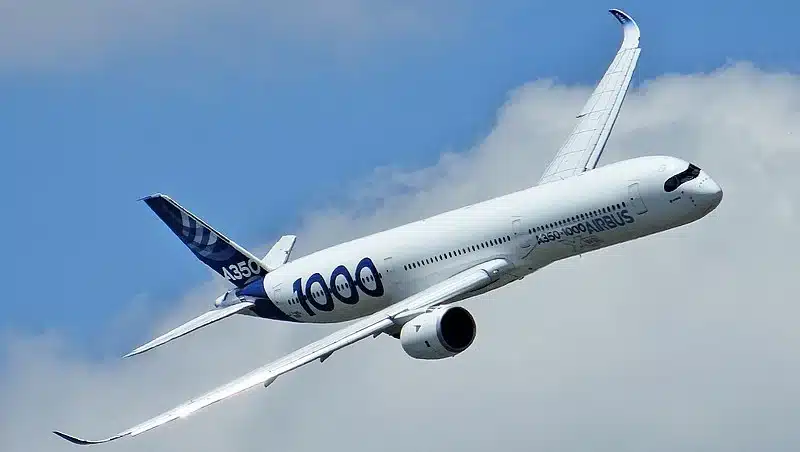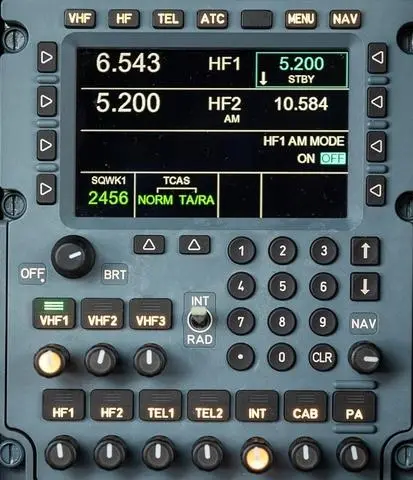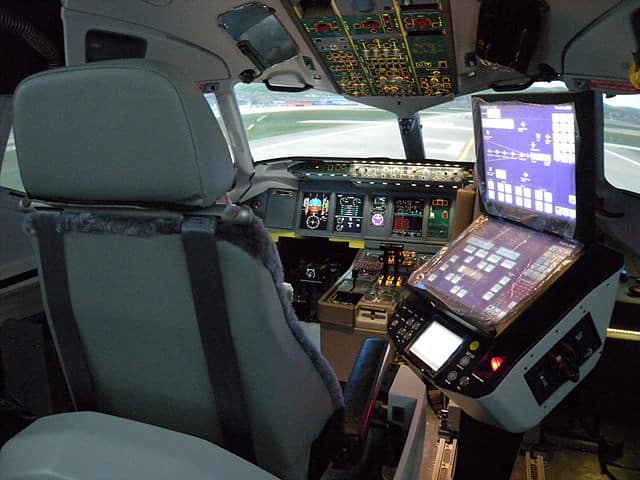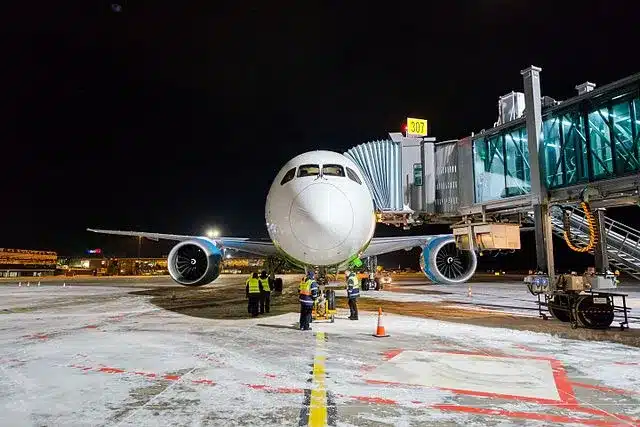Aerospace Engineering Jobs and Salaries
Our Guide to Aerospace Engineering Jobs
The design, development, and testing of aircraft, spacecraft, missiles, and other cutting-edge technology are the main goals of the dynamic and fascinating discipline of Aerospace Engineering Jobs. It is an interdisciplinary field that incorporates ideas from technical disciplines such as materials science, mechanical engineering, and electrical engineering.
This is an excellent resource to use if you’re thinking about a career in aeronautical engineering, or discover what to anticipate. We’ll go through the fundamentals of the aerospace engineering field, including the types of issues that aerospace engineers deal with, the competencies required for success, and the many career options. Especially in sustainability, where we have the small task of reinventing aircraft, engines and the systems they use for new fuels like Electricity and Hydrogen.
There is also the new eVTOL sector with new propulsion systems and engineering design opportunities.

Aerospace Engineering Jobs
The invention of powered flight around the turn of the 20th century is considered to be the beginning of aeronautical engineering. However, the official field of aerospace engineering did not begin to take shape until the space age began in the 1950s.
Following the Soviet satellite Sputnik’s launch the year before, the National Aeronautics and Space Administration (NASA) was created in the United States in 1958. As scientists and engineers from all over the world started to concentrate on the difficulties of designing and constructing spaceships and other cutting-edge aircraft, this signaled the beginning of a new era of exploration and invention in aerospace engineering. Aerospace engineering has developed and grown significantly over the ensuing decades, with significant advancements in areas like propulsion, materials science, and avionics. Today, aeronautical engineering is essential as we tackle climate change.
As it relates to AVIATION there are FIVE main areas
Aerodynamics
Propulsion
Systems Integration
Material Science
Airbus "Maveric" Blended Wing

CFMI New "LEAP" Engine

Boeing DATA Innovation

Birth of a Turbine Blade

Skills and Qualifications for Aeronautical Engineers
Let’s start at the basics. You need to have strong, demonstrable, skills in the following areas
Technical Skills – Good with your hands & Brain
Problem-Solving skills – Accuracy (not just speed)
Teamwork – Collaborative & Supportive
Attention to detail
Communication
Although degrees in aviation or aerospace engineering are preferred, employers also accept relevant courses like:
- Software Engineer
- Computer Scientist
- Engineering with Electronics or Electricity
- Mechanical Engineering
- Math
Business and Finance courses in Air Transport, Business, Production, or manufacturing engineering all good. Not to mention the growing area of ESG and sustainability.
A good degree, typically a 2.1 or above, is required for graduate training programs in engineering offered by many prominent aerospace corporations. But there are other ways!
Because you may need to stand for extended periods of time, particularly when testing prototypes or keeping track of experiments, aerospace engineers need to be physically fit. As engineers may need to lift and transport heavy equipment or mount aircraft to perform repairs or inspections, aerospace engineering jobs can be physically taxing. Aerospace engineers may need to bend, crouch, or crawl in addition to standing for extended durations to reach particular parts of an airplane or other piece of equipment. Physical endurance is crucial for the engineer’s ability to stay focused and productive as well as for assuring their own safety and the safety of others around them.
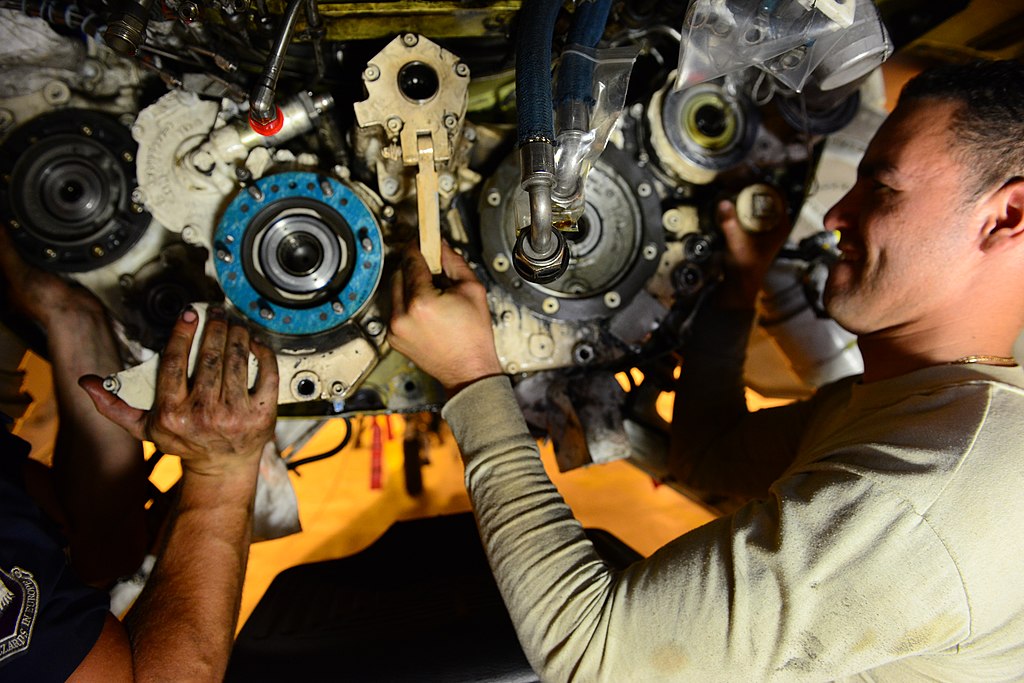
Aerospace Engineer Industry Employers
Here are the TOP 10 Aerospace OEMs in the USA. Now these companies are worldwide, with offices on every continent. Below are links to educational and informational pages that can help you in your journey.
| Careers | Innovation | Diversity & Inclusion | YouTube | |||
|---|---|---|---|---|---|---|
| 1. Boeing | ||||||
| 2. Airbus | ||||||
| 3. Raytheon | ||||||
| 4. Lockheed Martin | ||||||
| 5. Northrup Grumman | ||||||
| 6. GE Aerospace | ||||||
| 7. Rolls Royce | ||||||
| 8. Leonardo | ||||||
| 9. Honeywell | ||||||
| 10. Safran |
And here are the TOP 10 MRO companies (Maintenance Repair and Overhaul) from around the world. Again, these links give great insight into how these companies hire and what their values are.
Sure, they might not be in your neighborhood… but their requirements and approaches will be mirrored across the industry so can teach you a lot about how the industry, as a whole, works.
| Careers | Innovation | Diversity & Inclusion | YouTube | |||
|---|---|---|---|---|---|---|
| 1. Hong Kong Aircraft Engineering | ||||||
| 2. ST Aerospace | ||||||
| 3. Lufthansa Technik | ||||||
| 4. Air France/KLM Industries | ||||||
| 5. AAR | ||||||
| 6. SIA Engineering | ||||||
| 7. Delta Tech Ops | ||||||
| 8. SR Technics | ||||||
| 9. Turkish Technic | ||||||
| 10. MRO Holdings |
Job Market for Engineers and AMTs
| Role | 2021 Mean Annual Wage ($) | Projected Employees by 2031 | Entry Level Education | % Increase in Employment by 2031 | Employers |
|---|---|---|---|---|---|
| Aerospace Engineer | $122,270 | 166,452 | Bachelors Degree | 6% | OEMs, MROs |
| Aircraft Maintenance Technician | $ 65,380 | 153,400 | Postsecondary non Degree | 6% | Airlines, MRO, Airports |
| Hanger Manager | $ 98,230 | 10,000 | High School Diploma | 8% | Airports |
| Operations Specialist | $ 47,880 | 5,000 | High School Diploma | 8% | Airports |
| Aviation Safety Inspector | $ 77,560 | 15,000 | High School Diploma | 4.5% | Airlines, Airports |
| Aviation Planner | $ 76,730 | 35,000 | Bachelors Degree | 2.5% | Airlines |
| Aviation Systems Engineer | $ 122, 270 | 153,400 | Bachelors Degree | 6.3% | Airlines, MROs |
| Aviation Human Resources Specialist | $ 126,230 | 234,000 | Bachelors Degree | 7.3% | Airlines, Airports, MROs |
| Aviation Data Analyst | $ 96,710 | 125,000 | Bachelors Degree | 8% | All Employers |
*Salary is Median Range in US 2021 dollars according to the US Bureau of Labor statistics. This has been crossed referenced with five top G7 countries and found to be within 3-5%. For indicative purposes only.
Continuing Education and Professinal Development
Here's some of the biggest recruitment fairs in aviation:
- The Royal Aeronautical Society still one of the best resources on the web for Aerospace Engineering careers. While the meet-up is in the UK, their support network and tools are some of the best
- FAA Virtual Career fair managed by the Federal Aviation administration but fully online so a valuable experience for any English-speaking student looking at any Aviation role on the spectrum
- United Airlines the Airlines do it too! So, it’s good to keep an eye on operators on your radar – some of which have opportunities in stations around the world
- Airbus the same goes for the OEM market. Boeing has a great careers website too with videos and resources.
- Association of Aerospace Industries associations are a great place to bookmark when considering aviation. Here’s the link to the Singapore Fair
- Canada Countries do it too. Especially those that have specialized aerospace sectors, like Canada on the technical side. Ireland on the leasing side.
- Aviation Jobs Expo some entities are job specific and there are many in-person and virtual events you can attend.
- National Business Aviation Association this fair is specific to the Business/GA/Private Jet market and is also virtual.
Aviation Industry Organizations & Networking
ICAO
IATA
Airlines for America
Airlines for Europe
Air Transport Association of Canda
Association of Asia Pacific Airlines
African Airline Associations
Arab Air Carriers Association
Latin American Airline Association
Regional Airline Association
European Regional Airline Association
International Federation of Air Line Pilots Association


